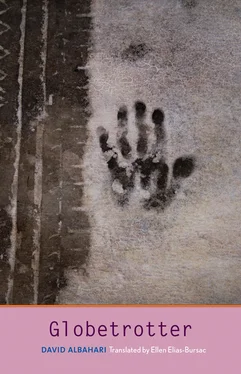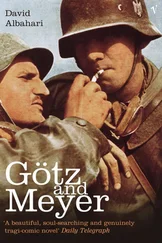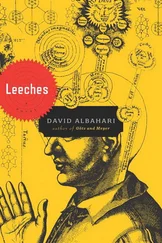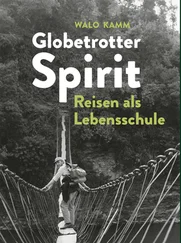He looked me straight in the eyes. I didn’t know what he saw in them, but in his I saw tears. I patted him on the shoulder and told him not to worry, that the package had come to the right hands and that I would definitely pass it on to Daniel Atijas as soon as the opportunity arose. Guy Fletcher thanked me, and having said that he still had to get back to the museum, he hurried downhill toward the parking lot. I waited for him to get beyond the administrative building, and then, right there on the little bridge, I pulled away the rubber bands and tore the paper. The edge of a soft cardboard box appeared. I opened that as well, actually ripped it open, and out of the gaping tear there began to fall photographs, postcards, sheets of paper with writing on them, notes with little drawings and smudged scrawls. Then an envelope appeared, small, all white, on which in the same uneven letters was the name Daniel Atijas. If there was something that resembled a human heart, I thought, then this envelope was it. I leaned over and began collecting the scattered bits of paper and photographs, and only then, when my head was near the ground, did I hear the muted sound of a flute, though it could have been the sound of a clarinet or a recorder, because except for the piccolo and the saxophone, all wind instruments sounded the same to me. I quickly had all the papers in my hands, and hugging them to my chest, I walked, slightly bent over, over to the studio. No one saw me, I met no one, but just in case, I locked the door and drew the curtains. I looked over the photographs, leafed through the sheets of paper with writing and the notes, picked out the blades of grass and twigs I had inadvertently gathered up with them.
I leaned the little envelope on a glass that was standing in the middle of the table. Everything that was in the package, in the torn box, all the photographs and pages covered in text, had to do with Ivan Matulić’s grandson’s time spent in Croatia. I assumed that the pages came from his diary, or perhaps this was his whole diary, supplemented with postcards and photographs, some of which, judging by who was in them, he had taken himself, whereas others had been taken by someone else. I did not make an effort to read anything, just as I did not open the white envelope. Though I didn’t know what was written in the letter inside it, I could make an educated guess: all he had discovered on his travels, on his journey into the heart of darkness, Ivan Matulić’s grandson was leaving to Daniel Atijas, convinced that he, Daniel Atijas, was on a journey headed in the opposite direction, away from the darkness and into the light, and there is nothing that so inspires us to embrace the goodness of the light as a constant reminder of the ominous nature of darkness. There are those who leave others the legacy of a torch, a beacon that shines, while someone else endows an absence of radiance, a black hole, a monster under the bed. I inferred all this from the letter in the white envelope, and then my head drooped, and I rested my forehead on the table surface. I knew, without trying to explain the reasons to myself, that I would not give Daniel Atijas the letter, but I did not know what to do with it. I could, for instance, have gone to the Banff cemetery and buried it there by a tombstone, along with the rest of the papers and photographs.
I also could have tossed it into the river and made paper boats out of the sheets of paper with writing and set them sailing after it. I could have gone into the woods, found a hollow tree, and thrown all the papers into it, including the unopened letter. A squirrel, I thought, would have been glad for such a cozy nest. Then I got up, went into the kitchen, found matches, and slowly, over the sink, burned everything: the photographs, the sheets of paper with writing and the notes, and finally the little white envelope. The paper burned quickly, easily; flames of different colors flickered up from the photographs; the envelope twisted, puffed, and stretched, then suddenly burned all at once, as if the fire were eating it from the inside. I turned on the faucet and rinsed the sooty remains down the sink and off my fingers. I remembered the box and the paper that everything was wrapped in, so I burned that, too, piece by piece. The only things I didn’t burn were the rubber bands, which I left in the drawer with the eating utensils, though just in case I wiped them off well with a towel, first a damp one, then a dry one. I opened the window, carefully inspected the sink and the whole kitchen, and then sat again at the table. I was satisfied. I could breathe more easily: aside from the smell of smoke that was still on my fingers, which wouldn’t last long, there was nothing that said there had ever been a package from Ivan Matulić’s grandson. My head drooped again, and, a little faster this time, I rested my forehead on the table. I will not fall asleep, I remember thinking, and then I woke up in pitch-black darkness, in the middle of the night, with a crick in my neck and dry lips.
At first I was convinced that I had found myself in a sea of absolute silence, but then, gradually, I was able to discern the nocturnal sounds, the crunching, scratching, panting, humming, so in the end I had to wonder how I had ever been able to fall asleep, and after that, of course, even when I lay down on the narrow cot, against the rules that forbade sleeping in the studios, sleep did not come easily. At exactly seven forty-five Daniel Atijas knocked at my door. He was in a white shirt, jeans, and sneakers, freshly shaven, neatly combed, ready to travel. I invited him in, and he reminded me as he entered that he had only fifteen minutes because at exactly eight he had to be at breakfast. He did not say who he’d be seeing there, but to be frank, that had ceased to interest me. I was tired, underslept, nervous, and I wanted to get it over with as soon as possible, to see him leave, travel away, and show up finally in that unfortunate country of his. Before this it had already occurred to me that my vision had been the result of his visit, and that he should be held in quarantine, stripped of his right to move about freely — not only he but everyone from there — until the world was sure they had stopped spreading the contagion of conflict and destruction. Several days ago, I know, such a thought would never have crossed my mind, but now everything was different, including me. We could waste no time, however, since both he and I were in a hurry, and fifteen minutes is not much, so I stepped back from the door, let him in, offered him a seat, put a cup of coffee in front of him, along with a sugar bowl and a dish with honey, and then, almost in the same movement, without losing a moment, I continued to the other side of the studio, where I brought the pad with the pile of drawings from.
Until then I had thought it would be enough just to set it down on the table and have him look through the drawings, but as I came over clutching the pad tightly, our eyes met, and I saw that he was expecting me to say something. He hadn’t struck me as the type of person to whom one needed to explain one’s actions, but that was when we’d first met, and now, after everything that had happened, there was nothing I could be certain of. I looked at my watch: thirteen more minutes until eight. I told him I would like his opinion on the drawings I was putting in front of him, drawings I had spent many hours on over the past weeks, so in a multitude of different ways, which I would not go into now, I said, they were connected to his presence in Banff, and I felt it was important to show them to him despite the pressure he was certainly under as he prepared to go, for during these last days, I said, I had come to value the aptness and subtlety of his ability to gauge things, and an appraisal such as his, as he must know from his own experience, could be decisive motivation for further work or, indeed, for giving up altogether, since it would allow the artist to jettison needless ballast. I had not meant to sound like such a sycophant, but sometimes words say what they want to say, and there is nothing we can do about it. I looked at my watch again: eleven minutes to go. I opened the pad with the drawings and sat across from him. On the first drawing, a gently curving line depicting a furrowed brow, he spent almost a minute. Then he leafed through the drawings faster and faster, halting at those that drew his attention — for instance, one I had called Thirteen Views of the Left Ear —though a little later, when the drawings became more complete and the figure on them more visible, he slowed the rhythm of his leafing, and perhaps just when he had come to the drawing on which all the individual elements first formed a whole, at that moment, he seemed to stop breathing altogether.
Читать дальше







![David Jagusson - Fesselspiele mit Meister David [Hardcore BDSM]](/books/486693/david-jagusson-fesselspiele-mit-meister-david-har-thumb.webp)




